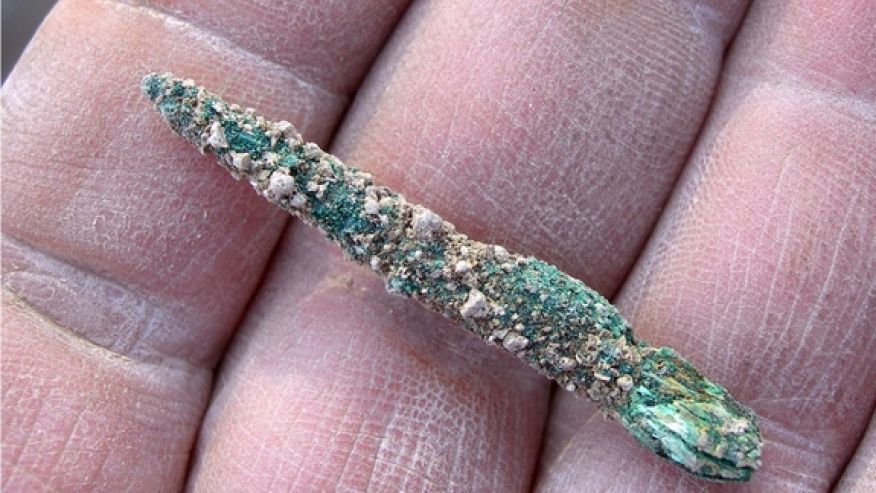
A copper awl is the oldest metal object unearthed to date in the Middle East. The discovery reveals that metals were exchanged across hundreds of miles in this region more than 6,000 years ago, centuries earlier than previously thought, researchers say.
The artifact was unearthed in Tel Tsaf, an archaeological site in Israel located near the Jordan River and Israel’s border with Jordan. The area was a village from about 5100 B.C. to 4600 B.C., and was first discovered in A.D. 1950, with digs taking place from the end of the 1970s up to the present day.
Tel Tsaf possessed large buildings made of mud bricks and a great number of silos that could each store 15 to 30 tons of wheat and barley, an unprecedented scale for the ancient Near East. The village had many roasting ovens in the courtyards, all filled with burnt animal bones, which suggests people held large events there. Moreover, scientists had unearthed items made of obsidian, a volcanic glass with origins in Anatolia or Armenia, as well as shells from the Nile River in Egypt and pottery from either Syria or Mesopotamia. All in all, these previous findings suggest this community was an ancient international center of commerce that possessed great wealth. [Link]



